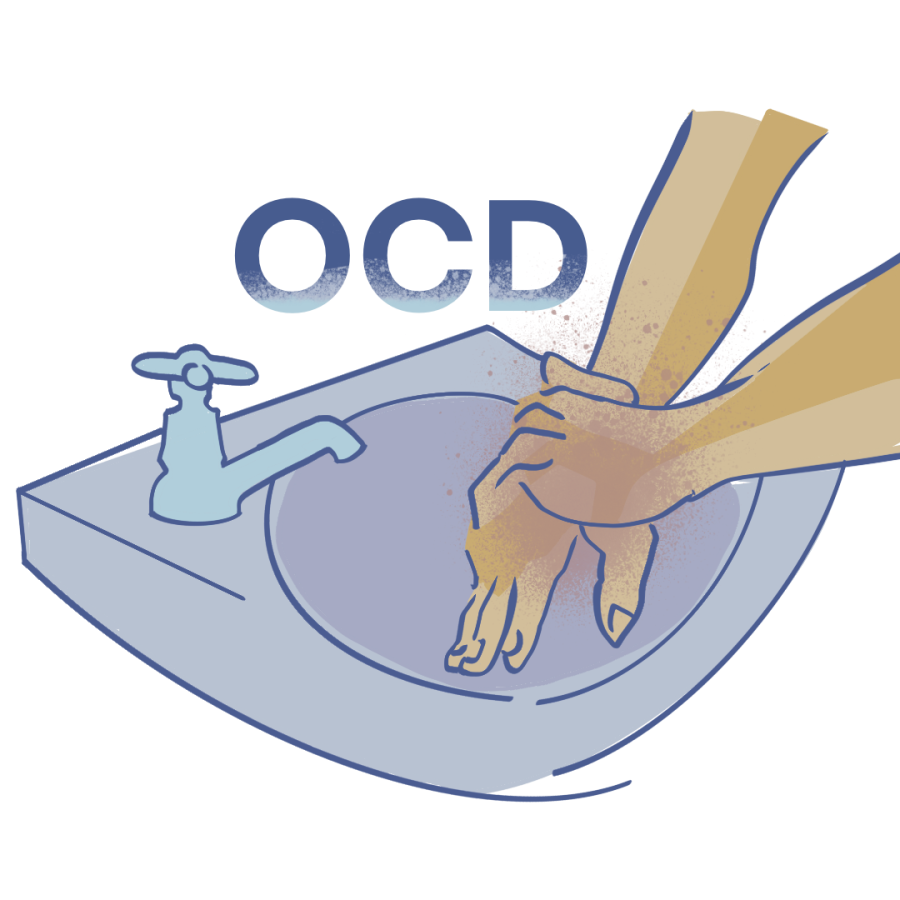OPINION: OCD is not an adjective
“I’m so OCD.”
“If you’re a little OCD like me.”
How many times have I heard this? More times than I can count.
Saying these phrases is discrediting everything a person with OCD goes through on a daily basis.
The National Institute of Mental Health defines obsessive-compulsive disorder as a chronic, long-lasting mental disorder in which a person has uncontrollable, reoccurring thoughts (“obsessions”) and/or behaviors (“compulsions”) they feel the urge to repeat over and over. People with OCD can have obsessions or compulsions or both that interfere with daily life.
There are several subtypes of OCD, so symptoms vary from person to person. What one person experiences, another may not. Common obsession symptoms include worries about contamination, harm and symmetry. Common compulsions include excessive cleaning and hand washing, ordering objects in a particular way, repeatedly checking things and counting.
I suffer from contamination obsessions and a variety of compulsions including hand-washing, checking, counting, repeating actions and repeatedly touching objects – as well as others. My rituals are preceded by a physical sensation rather than an anxiety-based thought. You can think of this as constantly having “pressure” in your fingers, feet or another body part. You can even have psychological discomfort not related to fears that make you perform these compulsions.
I start every day by waking up and making sure my feet touch the floor correctly when I get out of bed. I end every night by checking my alarm clock on my phone a dozen times, while touching the screen until my fingers feel right. I wash my hands after nearly everything I touch, from pill bottles and clean silverware to dishes and candle lids. If I touch something incorrectly, I have to wash my hands.
The list goes on and on. And even when I do wash my hands, sometimes I’ll wash them over and over because it doesn’t feel right.
So, when you use OCD as a way simply to describe yourself, you’ve just invalidated everything I experience.
I have suffered from OCD for most of my life. I can remember back to middle school constantly checking my backpack to make sure I had everything. I’d even ask my friends if they saw my stuff, too. I can’t remember a time when I set something down and didn’t have to pick it back up because it didn’t feel right.
I’m counting to the number four or 10 constantly in my head. Counting to four until I can put my glasses on. Counting to 10 until I can put my water bottle down. The numbers don’t stop.
This is just a glimpse of what I experience every day.
Some new people I meet will say stuff like, “That’s driving my OCD crazy,” or “I’m really OCD about that.” Until they find out I have OCD, and then they don’t say it again.
Why does it take knowing someone with OCD to stop saying those things?
I have a solution. Just don’t say it.
Half of OCD cases are misdiagnosed, and the prevalence of OCD cases may be higher because of undiagnosed cases. The National Library of Medicine reports on a study that shows the overall misidentification rate of the 208 physicians who completed the survey was 50.5%.
So, think before you say those things because you never know who could be suffering in silence.
Cross River Therapy reported OCD affects 1.2% of the U.S. population, which is 2.5 million adults. This means 1 in every 100 adults has OCD. When my professor said to her students, “If you’re a little OCD like me and like to stay really organized…” chances are at least one person in that room of 116 students suffered from OCD.
In that moment, that one person was me.
So yes, we are tired of hearing you say, “I’m so OCD right now because my desk isn’t organized,” or “I’m so OCD because I had to clean my messy room.” You are not “OCD” because you left a few items out in your room before you left, or it’s messy and you want to clean it. OCD is not a personality quirk, it’s a debilitating disorder.
I know the difference. I wish you did, too.
Josie Burkhart is a copy editor. Contact her at [email protected].



